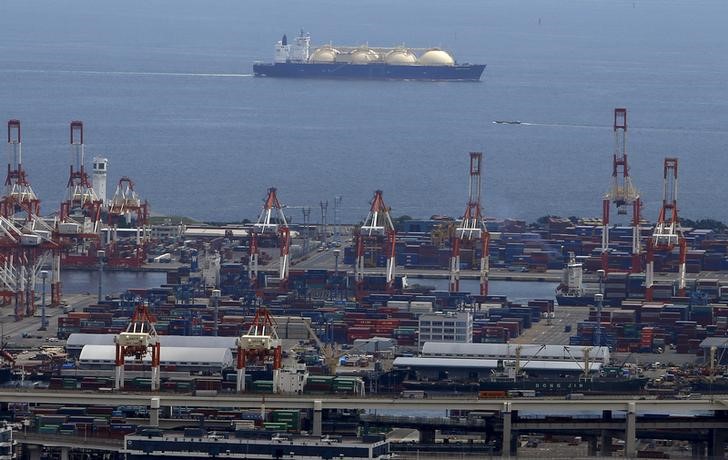MOSCOW (Reuters) - Costs in Russia's manufacturing sector rose for a fourth month running in May, data from the state statistics service Rosstat showed on Wednesday, vindicating the central bank's decision to issue a hawkish signal as it held rates in early June.
The central bank on June 9 issued its strongest signal yet that it might hike interest rates this year, saying that likelihood had grown as inflationary pressures intensify, yet held its key rate at 7.5% as expected.
The producer prices index (PPI), a measure of costs in the manufacturing sector, increased 3.7% in May. In February, the index rose for the first time month-on-month since April 2022.
On an annual basis, the PPI fell 3.6% in May, Rosstat said. In the same month last year, the index had risen 19.1% year on year.
Rosstat also published weekly inflation data, showing that consumer prices were barely changed, up just 0.02% from June 14-19. Weekly consumer prices jumped at the start of June, but have eased since then.
Since the start of the year, prices have risen 2.61%, Rosstat said, a slower pace than in the same period of 2022. In a separate set of data published on Wednesday, Russia's economy ministry said inflation was running at 2.96% on an annual basis, up from 2.87% a week ago.
Producer price growth in extraction industries more than doubled to 12.2% in May, from 5.5% in April, driven in particular by rises in costs for liquefied natural gas, silver concentrates, oil, coking coal and gas condensate.
On an annual basis, producer prices for extracted raw materials fell by 7.7% in May.
Double-digit annual inflation hit Russia last year soon after it sent its armed forces into Ukraine on Feb. 24, 2022, eliciting sweeping Western sanctions. Annual inflation has dropped below the central bank's 4% target in recent weeks due to that high base effect, but is now rising again.
Russian households regularly cite inflation as their main concern, with many having no savings after a decade of economic crises and rising prices that have dragged down living standards.
